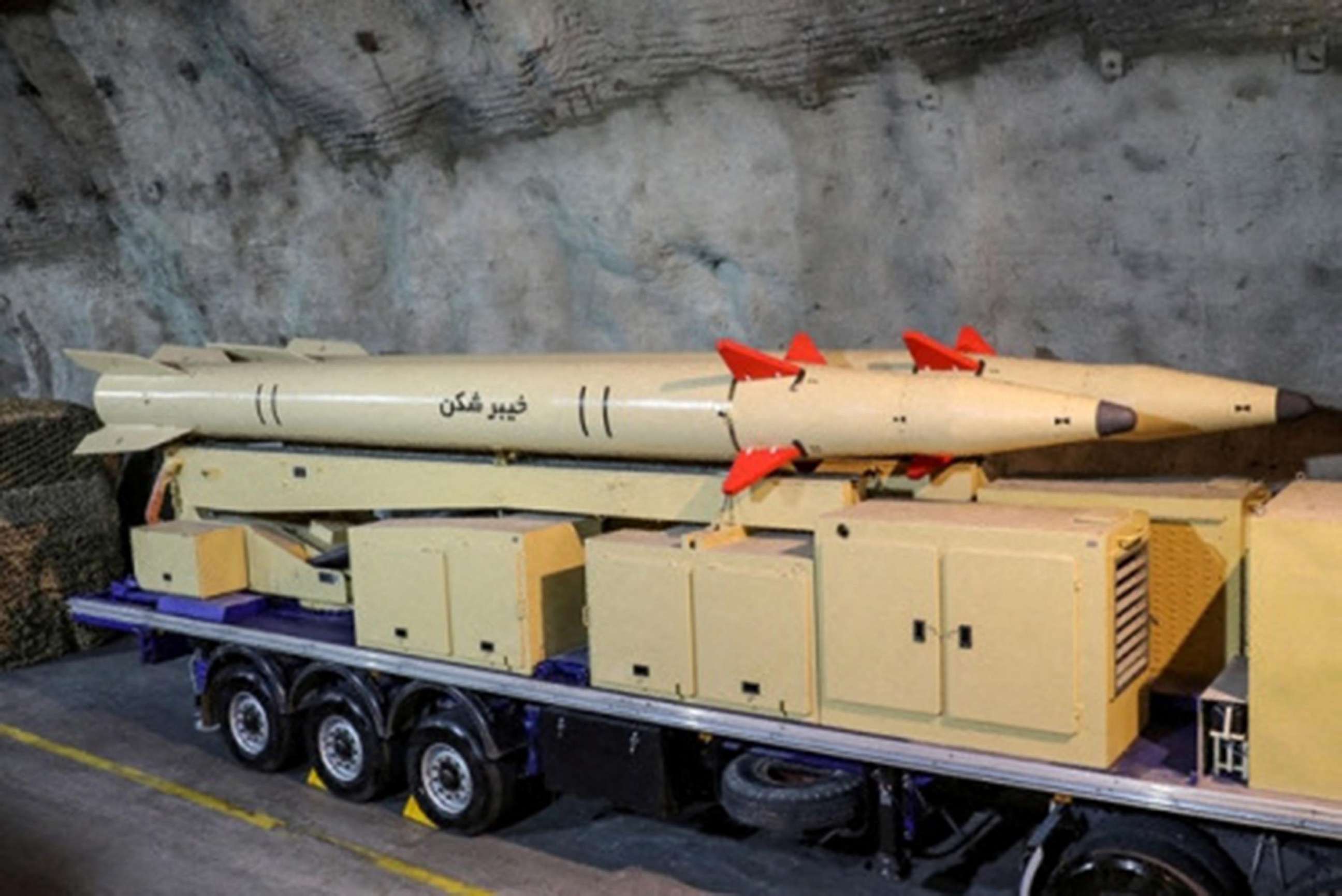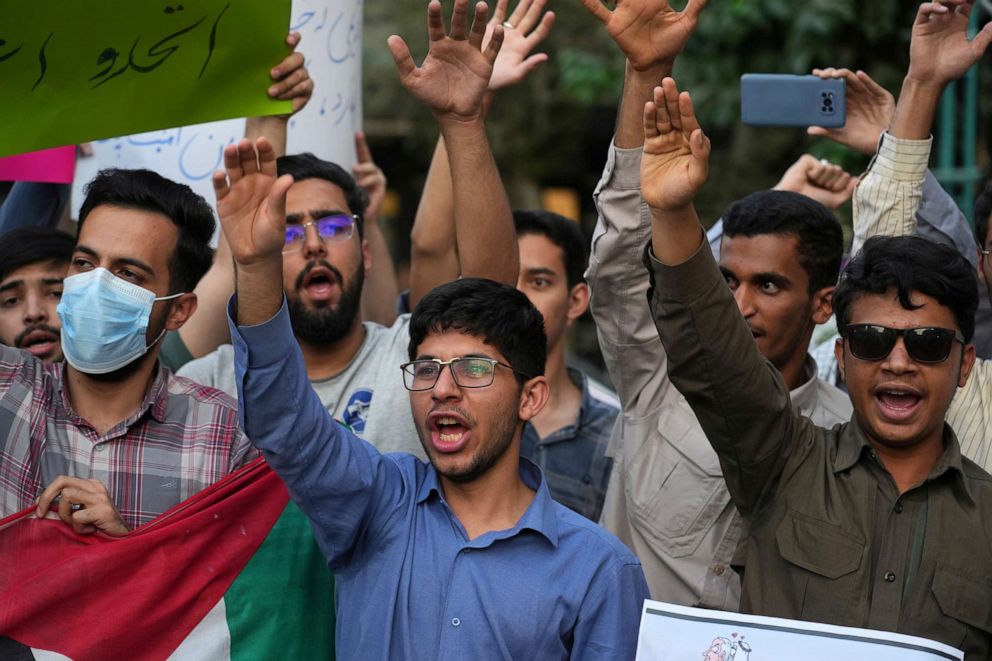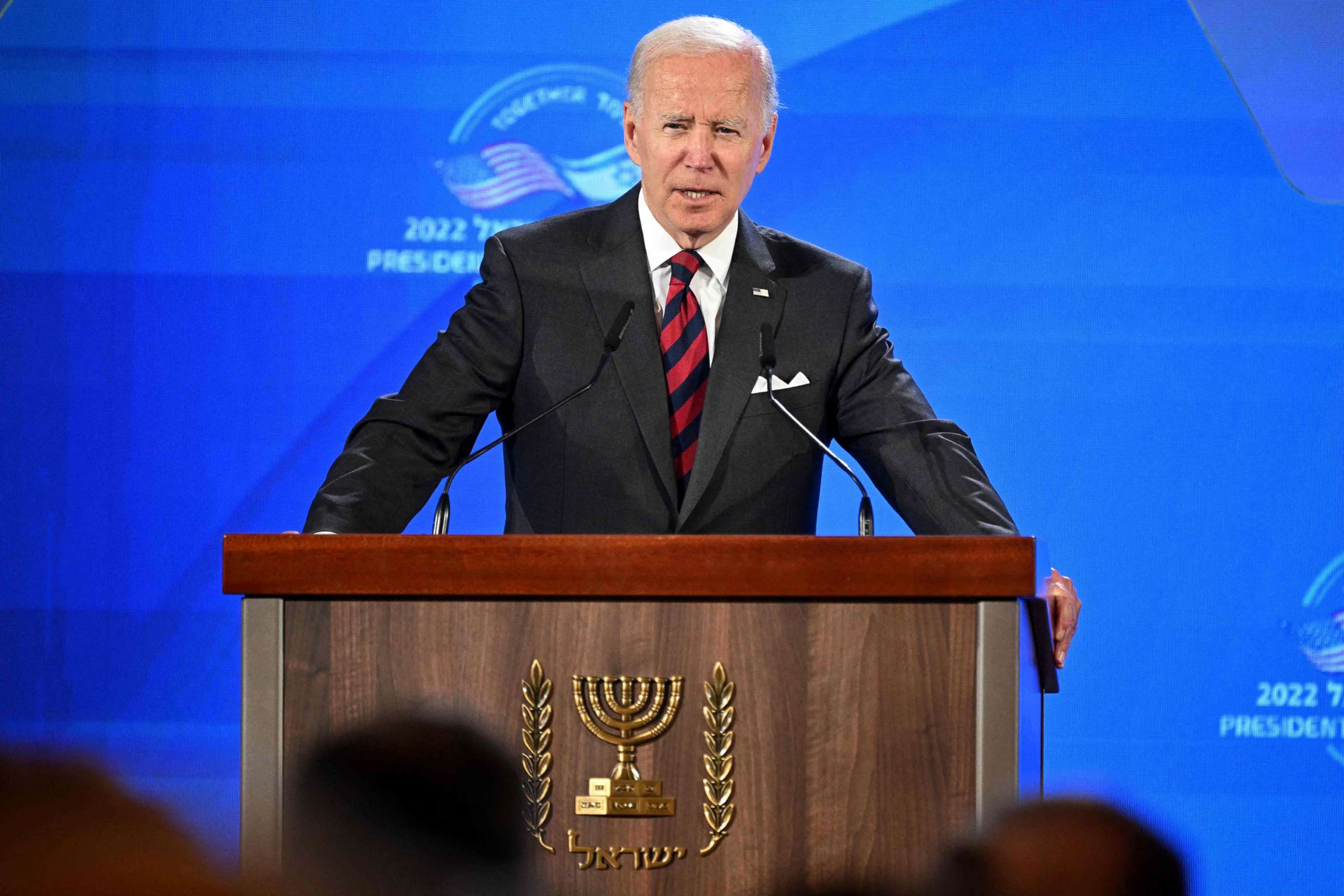Biden left with few options on Iran as nuclear talks stall
He said military action is a "last resort," but diplomacy has sputtered.
President Joe Biden made a clear promise on Iran, declaring that the country would never become a nuclear power under his watch. But during his time in the White House, the path towards upholding that promise has only become murkier.
During his trip to the Middle East, the president said he would consider using force against Iran only as a "last resort," although Israel, the U.S.’s most ardent ally in the region, has pushed for the administration to issue a "credible military threat" against Tehran. His administration has downplayed the efficacy of such an intervention, saying it could not erase Iran’s advancements and would only modestly slow its progress towards creating a nuclear weapon.
Instead, Biden has prioritized diplomacy -- seeking to negotiate a return to the 2015 Joint Comprehensive Plan of Action, an agreement aimed at ensuring Iran’s nuclear program would be used only for peaceful purposes that former President Donald Trump withdrew from in 2018.
But while the administration initially hope to cut a "longer and stronger" deal with Iran, over a year and half of indirect negotiations has produced little movement towards restoring even the original terms of the agreement.
After a monthslong stalemate, a 9th round of talks took place in Doha, Qatar, at the end of June. A State Department spokesperson did not sugarcoat the outcome, saying "no progress was made."

"I think the process is increasingly hopeless," said Ali Vaez, the Iran Project director at The International Crisis Group and former senior political affairs officer at the U.N. "The meeting in Doha was a major setback, because it was an absolute dead end."
While both sides have shown little willingness to move past outstanding sticking points, the political motivation to do so also diminishes by the day.
On the Iranian side, Vaez says politicians know all too well that any deal cut now may be reneged upon later if Democrats don’t retain hold of the White House. And because hardliners hold complete control over Iran’s government, they would be saddled with the entirety of the blame.
"They would have no scapegoats," he said. "They would be seen primarily as responsible for committing the same mistake twice."
Beyond that, Vaez says there’s a perceived economic risk.
"Their view is that their economy has not adjusted to sanctions," he said. "Although there might be a short term economic reprieve if sanctions are lifted, once they snap back, the shock for the Iranian economy will be even bigger than previous shocks."
The U.S. also has little room to maneuver, says Sam Hickey, an analyst at the Center for Arms Control and Non-Proliferation.
"There are a lot of political reasons not to want to take on the extra baggage of securing a deal at the moment," he said. "We have the upcoming midterm elections, and so frankly, any efforts to lift sanctions on Iran would hurt the Democrats, and likely it would be fuel for the Republicans."

Both Vaez and Hickey both say securing a deal would be beneficial for all parties -- but that while it may be possible, it does not seem probable.
Both sides will be better off with an agreement that would "freeze the cycle of escalation," Vaez said, with a stopgap measure that would see Iran ceasing to accumulate highly enriched uranium in exchange for its oil returning to the market.
"I do believe there is an opportunity in the next few months to try to explore the possibility of this kind of stopgap agreement, even though it's hard to be optimistic about even that option because the two sides have mismatched expectations," he said.
But while Iran and the U.S. might seem comfortable enough with the deadlock at the moment, Hickey says it’s ultimately unsustainable.

"The status quo where Iran’s nuclear program continues to advance relatively slowly and the U.S. continues to put more economic sanctions on the program and attempts to diplomatically isolate Iran -- that that paradigm cannot exist indefinitely, and I'm very uncertain that it can even last another two years," he said. "Now, we're kind of continuing along an escalatory ladder, but we are really running out of rungs on the ladder."
Though the U.S has other means of trying to curb Iran’s nuclear ambitions, they also come at a cost.
"The problem is every time the administration ups the ante, the Iranians retaliate," Hickey said.
Hickey says this is already playing out in a dangerous way, with Tehran responding to a U.S.-led international censure by blocking the United Nation’s atomic energy watchdog’s attempts to monitor its nuclear program -- creating a scenario where Biden’s "last resort" could easily become reality.
"It’s getting to the point where it is incredibly difficult for U.N. nuclear inspectors to confirm exactly what fissile material Iran has and where it is. It could fuel speculation that Iran is diverting that material for some later time. And that’s going to lead to military confrontation," he said.
He added, "That would not be confined to the borders of Iran. That would spread through to every country in the region."




